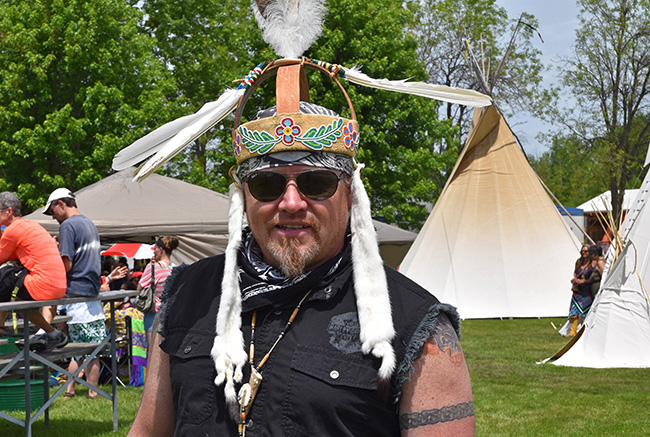Nipissing First Nation Chief calls for MMIWG top commissioner to step down

By Kelly Anne Smith
NIPISSING FIRST NATION – The Chief of Nipissing First Nation is asking for the resignation of the head commissioner of the National Inquiry into Missing and Murdered Indigenous Women and Girls.
Chief Scott McLeod sided with the majority at The Assembly of First Nations Special Chief Assembly in Ottawa on December 9. The congregation voted to ask the federal government to “reset” the inquiry by appointing a new leader. The assembly is also requesting the inquiry be given two more years to complete the mission of “learning the truth by honouring the lives and legacies of Indigenous women, girls and members of the LGBTQ2S community”. There has been criticism of the inquiry’s communication with the public and by focusing on testimonials rather than on finding solutions.
Chief McLeod is in agreement with the resolution. “Unfortunately, in the best interest of the process and confidence of the families that are deeply affected by MMIWG, I have to support the call for Commissioner Buller to step down. It’s a very difficult and sensitive issue but it’s interfering with the Inquiry itself. The well-being and confidence needs to be placed in the forefront. This isn’t a personal attack on Buller by any means but merely a vote in the best interest of the families.”
It was reported that Chief Janice Henderson of Mitaanjigamiing First Nation was originally critical of the commission but changed her mind. Chief Henderson now thinks the commission would be delayed if Buller stepped down. Chief Henderson attended the recent MMIWG Inquiry hearings in Thunder Bay and felt the commissioners were very supportive of family members. Meanwhile at the Special Chiefs Assembly, Head Commissioner Marion Buller said she won’t step down.
The stretching of resources on First Nations with changes to federal laws were also under discussion by the chiefs. The government will remove sex-discrimination from the Indian Act. There are now consultations in place to include the pre-1951 group who were excluded from being appointed Indigenous status.
Nipissing First Nation Chief McLeod could face flux in his community of 2600 members. “The removal of the 1951 cutoff is a bittersweet situation for our community. First, it is great to have our families recognized and welcomed back to the communities to which they belong. However, the issue is that First Nations are already underfunded for social programs, health programs and education. The Federal government needs to step up and fix these funding gaps now more than ever. First Nations are always left to deal with problems that are a result of Canada’s crimes against us.”
Cannabis was on the agenda as an information session to the Chiefs. Chief McLeod is apprehensive of the upcoming legalization of marijuana. “Nipissing First Nation has not looked at a Cannabis dispensary. Our concerns at this time are that legalization is happening too fast. First Nations require time to implement regulations, look at social impacts, provide education, increase policing and so on. We are not opposing but feel once again that First Nations will be left with many issues to deal with.” The federal government has announced that provinces will receive 75% of pot tax revenue.

